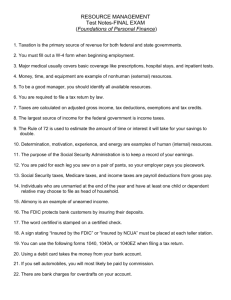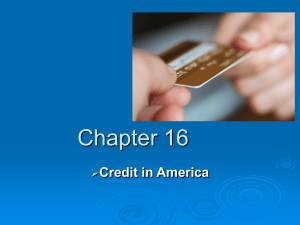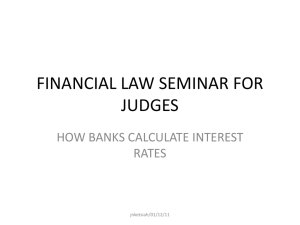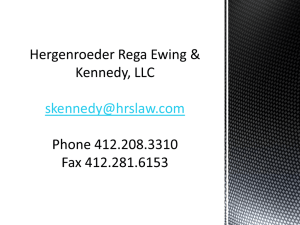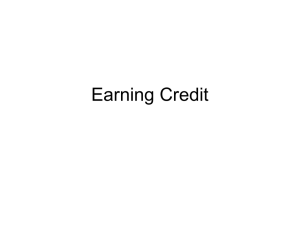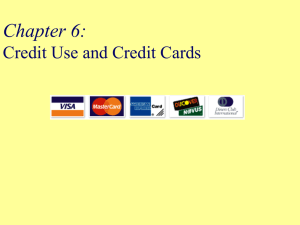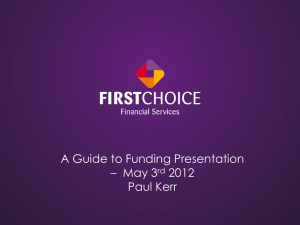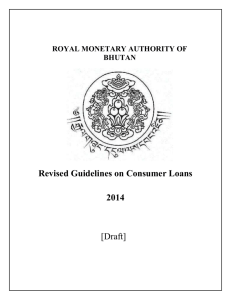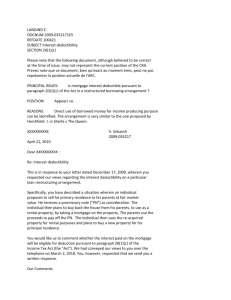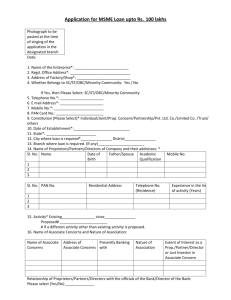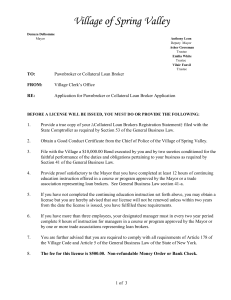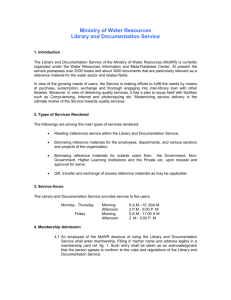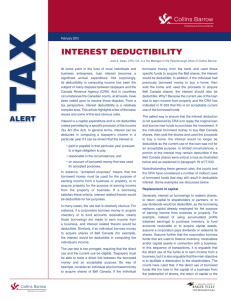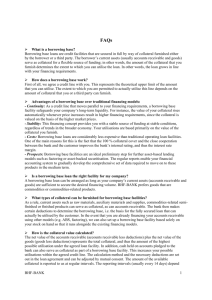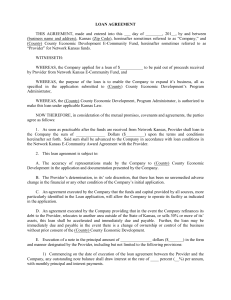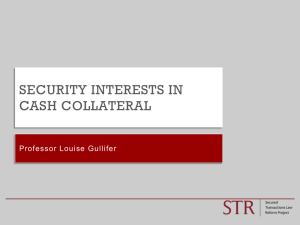Interest - Federal Reserve Bank of St. Louis
advertisement
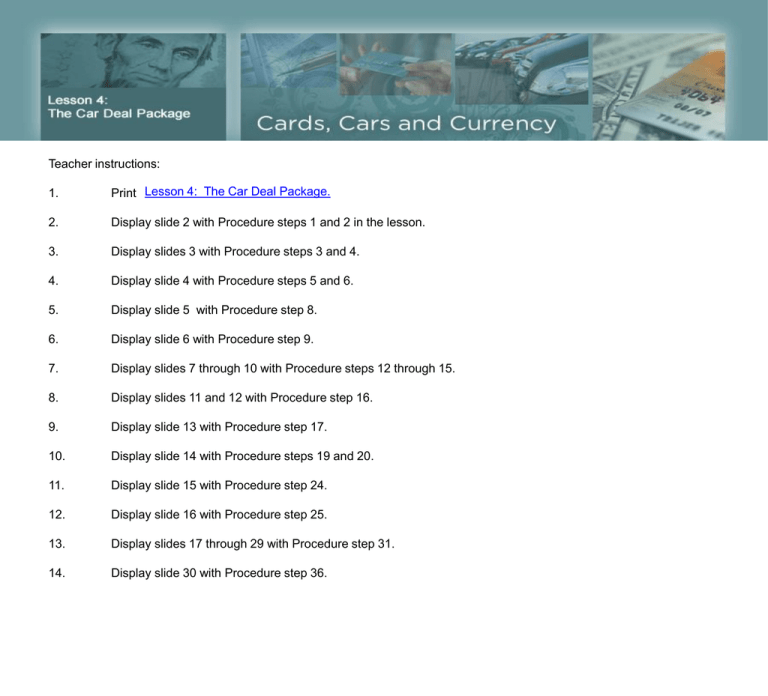
Teacher instructions: 1. Print Lesson 4: The Car Deal Package. 2. Display slide 2 with Procedure steps 1 and 2 in the lesson. 3. Display slides 3 with Procedure steps 3 and 4. 4. Display slide 4 with Procedure steps 5 and 6. 5. Display slide 5 with Procedure step 8. 6. Display slide 6 with Procedure step 9. 7. Display slides 7 through 10 with Procedure steps 12 through 15. 8. Display slides 11 and 12 with Procedure step 16. 9. Display slide 13 with Procedure step 17. 10. Display slide 14 with Procedure steps 19 and 20. 11. Display slide 15 with Procedure step 24. 12. Display slide 16 with Procedure step 25. 13. Display slides 17 through 29 with Procedure step 31. 14. Display slide 30 with Procedure step 36. $17,000 $55,000 $24,000 A contract is an exchange, promise or agreement between parties that is enforceable by law. Net pay is the amount received after all deductions have been subtracted from a paycheck. Gross pay is the amount earned before any taxes or other deductions are subtracted. $415 $1,343 $586 If $1,343 = 20%, then 100% = $6,715 If $415 = 20%, then 100% = $2,075 If $586 = 20%, then 100% = $2,930 Opportunity cost is the highest-valued alternative given up when a choice is made. A secured loan is a loan that is backed with collateral. Collateral is property required by a lender and offered by a borrower as a guarantee of payment on a loan. A lien is the legal right to take or sell property as security for a debt. Interest is the price of using someone else's money. 10% of $1,000 borrowed for a year = .10 X $1,000 = $100 5% of $1,000 borrowed for a year = .05 X $1,000 = $50 10% of $1,000 borrowed for a year = .10 X $1,000 = $100 10% of $2,000 borrowed for a year = .10 X $2,000 = $200 10% of $2,000 borrowed for one year = $200 interest Calculated as .10 X $2,000 = $200 interest for one year $200 interest per year X 2 years = $400 interest for two years Principal is the original amount of money borrowed or still owed on which interest is charged. caveat emptor let the buyer beware The Truth in Lending Act is a federal law that requires disclosure of information about the cost of credit. What is the difference between gross and net pay? Gross pay is income earned prior to deductions. Net pay is income remaining after all deductions (required and voluntary). What is interest? Interest is the price of using someone else's money; the price of borrowing money. What is collateral? Collateral is property required by a lender and offered by a borrower as a guarantee of payment on a loan. What is a lien? A lien is the legal right to take or sell property as security for a debt. What is opportunity cost? It is the highest-valued alternative given up when a decision is made. What is the opportunity cost of purchasing a new pair of jeans? It is whatever other good or service could have been purchased with the same amount of money now or in the future. What is principal? Principal is the original amount of money borrowed or still owed on which interest is charged. What is a secured loan? It is a loan backed by collateral. What is an advantage and a disadvantage of a secured loan? advantage: lower interest rate on the loan disadvantage: collateral for the loan can be repossessed and sold if payments aren't made What is a contract? A contract is an exchange, promise, or agreement between parties that is enforceable by law. What factors affect the total price of a car? interest rate, length of contract, and size of down payment What is the Truth in Lending Act? It's a federal law that requires disclosure of information about the cost of credit. Both the finance charges and the annual percentage rate (APR) must be displayed prominently on forms and statements used by creditors. What is the recommended maximum percent of net pay that should be spent on a monthly car payment? 20 percent Deal Votes 1 _____ 2 _____ 3 _____ 4 _____
